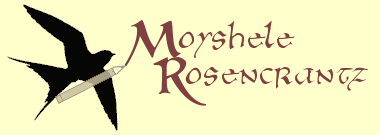Here’s another one of my singable translations of the great French singer-songwriter, Georges Brassens, into English. This time it’s Les Copains d'abord: a pun in French meaning both “friends on board” and “friends first”. I tried to keep the spirit of the pun by translating it as The Friend Ship. The French original, written for the movie Les copains (1964), is probably Brassens’ most recognisable song - the movie has long been forgotten, but the song lingers on, and even most teenagers will recognise it, albeit vaguely. It is sung at almost every family gathering with my French in-laws. Needless to say, the song is about friendship, and about a boat with the same name as the song title.
Tuesday, 26 July 2016
Monday, 25 July 2016
My grandfather's exodus - part 6
The sixth in a series of blog entries in which my grandfather, Arieh Rabani (Lova Rabinovitch), tells his adventures walking from the Soviet Union to Israel (1927-1929). You'll find the first part here. In this part, Lova crosses the border into Syria, then under French control, and is thrown straight away back into jail, where he has an unpleasant experience.
Friday, 22 July 2016
My grandfather's exodus - part 5
The fifth in a series of blog entries in which my grandfather, Arieh Rabani (Lova Rabinovitch), tells his adventures walking from the Soviet Union to Israel (1927-1929). You'll find the first part here. In this part, Lova escapes from exile, where he was sent by the Turkish government, and tries to continue by foot all the way to Syria.
Friday, 8 July 2016
Christ stopped at Eboli
An Italian friend heard that I liked Primo Levi, and asked me, had I read any works by Primo’s cousin, Carlo Levi? I hadn’t? Mama mia, it’s really worth the read! So when I finally found one of Carlo Levi’s books, Christ stopped at Eboli, on the shelf of a second-hand bookshop, I didn’t hesitate.
The truth is that there’s no family relationship between Primo and Carlo Levi, apart from the fairly likely descendance from the same biblical tribe.
The truth is that there’s no family relationship between Primo and Carlo Levi, apart from the fairly likely descendance from the same biblical tribe.
Thursday, 7 July 2016
My grandfather's exodus - part 4
The fourth in a series of blog entries in which my grandfather, Arieh Rabani (Lova Rabinovitch), tells his adventures walking from the Soviet Union to Israel (1927-1929). You'll find the first part here. In this part, Lova is in jail, without any money or any food, so he thinks up a nice trick for getting some food to eat. Little by little, he gets to know his jailers and fellow prisoners. But when the order comes to send him back to Russia, he loses his temper...
Tuesday, 5 July 2016
My grandfather's exodus - part 3
The third in a series of blog entries in which my grandfather, Arieh Rabani (Lova Rabinovitch), tells his adventures walking from the Soviet Union to Israel (1927-1929). You'll find the first part here. In this part, Lova crosses the border into Turkey, and immediately goes to the local police to declare himself, so as to avoid being accused of spying.
Monday, 4 July 2016
The Lousy Reputation
A German teenager once told me at a picnic that, ever since “what happened during the war”, it would be considered indecent to hang a German flag out in front of your house in Germany. François Hollande tried to encourage this sort of in-your-face patriotism in France after the terrorist attacks on November 13th, 2015, asking the French to hang a red-white-and-blue flag out their window in homage to the victims. But I too am allergic to flag-waving, and I'm relieved that almost nobody in our neighborhood followed his advice. I can understand loving a culture, a language, a landscape, the music, food or architecture of a place. But to me a flag represents none of the above - it represents a state and a governing structure: necessary perhaps as protectors of your person and property and as providers of public services, but too often responsible for a host of evil acts as well. So, in honour of the star spangled 4th of July, I’ll spangle my web page with notes and letters from another one of my singable English translations of the great French singer-songwriter, Georges Brassens: La Mauvaise Réputation (literally “the bad reputation”), which I translated as The Lousy Reputation.
It’s a cheery hymn to non-conformity. I took some liberty in replacing
the 14th of July (Bastille Day, or the French National Holiday) with the
4th of July (American Independence Day), but otherwise I managed to
stick pretty close to the original.
Subscribe to:
Comments (Atom)
